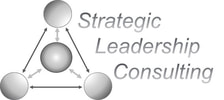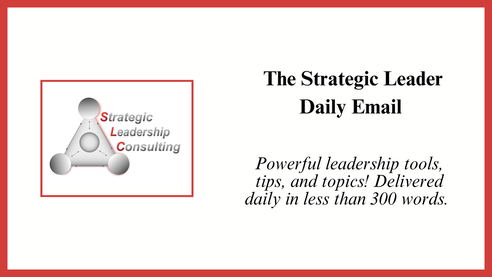|
Colleagues,
Yesterday I encouraged you to ask the second question, but I didn’t fully explain what that means. Being present involves listening and listening involves hearing what is said. However, real listening also includes hearing what is not said. When we are present, we can listen, and when we listen, we can hear both what is said and what is left unsaid. How are you? Fine. That word says so much when we are really listening, and many times there is more to the story. No, really, how are you? When we ask the second question, we are leaning into what was unsaid and creating the opportunity and space for it to surface. The uncovering of something is the first step to taking action. Asking the second question is also a powerful affirmation as it communicates to the other person that you value them enough to really listen and care enough to want to know the full truth. The second question exemplifies wu wei because it leads to uncovering, which leads to discovery, and discovery is a catalyst for change. Do good and be well, Frederick
0 Comments
Colleagues,
Yesterday we talked about having great influence through small actions and identified being present as a key strategy, but what does presence really mean? We generally think of being present as the physical act of being somewhere, but it is more complex than that. While we may be physically present, we are oftentimes mentally and emotionally absent or distracted. Being present involves being with someone. In his superb book Ethical Leadership (2004), Jerry Starratt identifies three ways of being present that are essential for leaders. Affirming presence emphasizes the humanity and individuality of others. Affirming presence involves recognizing the person as an individual with a unique story and conveys that the leader cares about that story. Critical presence involves stimulating reflection. It calls on both participants to engage and think deeply about an issue or challenge and to go beneath the surface. Critical presence relies on an honest exchange of ideas. Enabling presence requires us to work with the other person to help them be successful. Enabling presence is built on the idea that success is rarely an individual accomplishment. Rather, success comes from people working together by enabling (empowering) each other. When we are fully present, the other person will feel valued and respected. We communicate and affirm their humanity, we help them confront their challenges, and we empower them to succeed. I encourage you to try something today. Be fully present for at least one interaction with another person. Turn off or block all alerts, messages, etc… Ignore time. Hang on every word. When you ask how they are and they say fine, ask the second question – No, really how are you? You may be surprised by the answer and it may be an answer that opens doors for something better. Do good and be well, Frederick Colleagues,
Back in the summer I shared a piece about wu-wei, or doing without doing. The basic idea is that there are small actions we can take that have big effects over time. Last week I wrote about offering consistent specific positive feedback (read it here). One example focused on acknowledging how a person’s strengths in setting meeting agendas with specific outcomes led to more productive team meetings and better project outcomes. This is an example of wu-wei. Your specific feedback reinforced a key behavior that positively impacted the entire team and, ultimately, the project. Imagine that things hadn’t been going well, and that the agendas were a mess. While the team leader was complaining about poor team meetings, you responded with “I hear your frustration. Two strategies that have worked for me in the past are developing specific necessary outcomes for the meeting and getting the agenda out three days in advance. If you want to try these I’m happy to help you.” In this case, your simple suggestion makes a big impact. Your 42 words lead to changes that impact the entire project, and at what cost to you? That is wu-wei. There are three habits that make wu-wei easier:
As you move through this week, be mindful of all of the opportunities you have to take small actions that could yield big results. Do good and be well, Frederick Colleagues,
Nineteen years ago, life in the United States was permanently altered. This has become a solemn day, the December 7, 1941 for post-war generations. I just needed to acknowledge this before diving in. It’s Friday, a great day to reflect. We’ve talked before about the importance of healthy reflection and how you can increase the impact by:
Reflecting with others can also increase value. Here are some things to reflect on today:
Thank you for being a leader. Thank you for taking care of others. Thank you for being that lighthouse that people look to for hope and encouragement. Do good and be well, Frederick Colleagues,
Yesterday I promised you two strategies to grow people. Please understand that these strategies need to be carried out on a consistent basis to really make a difference. While the immediate goal is to help an individual grow, the cumulative value is in getting people to be more reflective about their own performance.
Here are three examples for providing specific positive feedback:
Do good and be well, Frederick |
Categories
All
Archives
July 2024
|


 RSS Feed
RSS Feed